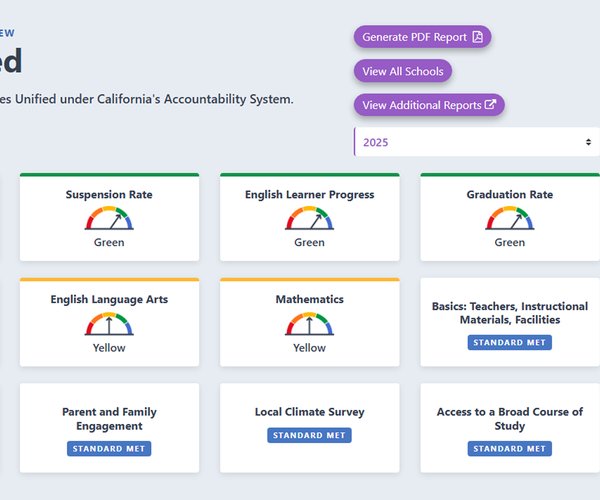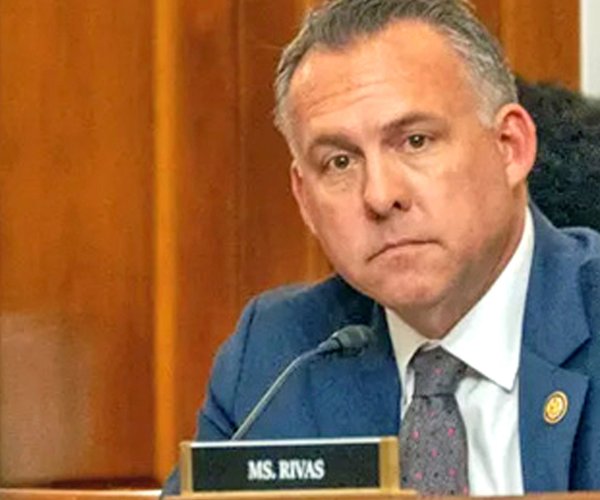A grand jury investigation has revealed that the executive director of the Stanislaus Council of Governments (StanCOG) used taxpayer funds to pay for expensive hotel rooms and room service, renting luxury cars – often while failing to produce receipts.
And the fallout is that on Monday the StanCOG policy board placed Park on paid administrative leave.
Stockton resident Rosa De Leon Park, who was not called out by name in the grand jury report but has served as the StanCOG executive director since 2015, will continue to draw her salary while the policy board digs into the allegations.
Stanislaus County Supervisor Channce Condit (District 5), who represents Ceres and serves on the 16-member policy board that held a special meeting Monday, was one of five to vote against placing Park on paid leave during a three-hour, closed-session meeting.
“I want to be crystal clear why I did that,” said Condit. “I did not support the paid administrative leave of $25,000 per month for the (executive director), which is her monthly salary, so I voted no. I was in favor of a non-paid administrative leave, but that measure failed.”
Also voting no were supervisors Terry Withrow (District 3) and Mani Grewal (District 4), Patterson City Councilmember Carlos Roque, and Oakdale City Councilmember Kayleigh Gilbert.
Park attended the meeting and didn’t speak publicly but her attorney issued a statement on her behalf: “Ms. De Leon Park was disappointed to read the many inaccuracies and misrepresentations contained in the civil grand jury’s report, particularly after she and her staff worked cooperatively and collaboratively with the grand jury to provide voluminous and accurate documentation responsive to their inquiries,” said Kevin J. Rooney. “Ms. De Leon Park is also disappointed with the board’s action and looks forward to the results of an independent and unbiased review of the claims made in the grand jury’s report.”
Elisabeth Hahn, StanCOG’s deputy executive director of planning, will replace Park on an interim basis.
Park has been StanCOG’s executive director since August 2015.
“As a member of the StanCOG policy board, I support the board’s original statement addressing the recent grand jury report,” said Ceres Mayor Javier Lopez. “(Monday) night, the board voted to place the executive director on administrative leave with pay — not as a judgment, but to ensure a fair and transparent process while the concerns are thoroughly reviewed. The director deserves the opportunity to respond to any allegations, and clear her name.”
StanCOG is a council of city and county governments comprised of the cities of Ceres, Hughson, Modesto, Newman, Oakdale, Patterson, Riverbank, Turlock and Waterford, and the County of Stanislaus to address regional transportation issues. It was established as a Joint Powers Agreement (JPA) in 1971.
It is the clearinghouse for all transportation funds to be disbursed to the nine cities and Stanislaus County. The agency is responsible for developing and updating a variety of transportation plans and addressing regional air quality.
The grand jury stated that its investigation was hampered by a lack of evidence requested and a seeming lack of cooperation.
“It is difficult to expect transparency and stability in a chaotic environment like the one that exists at StanCOG,” the grand jury report noted.
StanCOG’s Policy Board, chaired by county Supervisor Buck Condit, released a statement Friday that said the county auditor will be delving into the alleged abuses. A press release from StanCOG stated: “What the civil grand jury found is deeply troubling. We are a public agency that is trusted to safeguard taxpayer dollars and deliver results for our community. This alleged level of waste and mismanagement demands immediate action. We are deeply disturbed by the supposed waste, mismanagement, and lack of accountability within StanCOG’s management. If true, these actions are unacceptable. Government must be accountable to the people it serves. As elected officials we have a duty to restore integrity, demand reform, and ensure taxpayer dollars are respected—not squandered.”
Efforts to contact Park were unsuccessful, though StanCOG’s policy board issued a statement on Thursday: “We are currently reviewing the findings and recommendations in full and are preparing a detailed formal response, as required within the 90-day response period. What the civil grand jury found is deeply troubling. We are a public agency that is trusted to safeguard taxpayer dollars and deliver results for our community. This alleged level of waste and mismanagement demands immediate action.”
StanCOG’s board is calling for a workforce investigation and an independent forensic audit, implementation of a strict fiscal accountability framework, re-evaluation of the policy board’s oversight responsibilities, a review of executive management, and the creation of an ad hoc committee to oversee the workforce investigation and forensic audit.
Supervisor Buck Condit (District 1), the board policy chairman, announced that Newman Mayor Casey Graham has been named the chair of the ad hoc. He’ll be joined on the body by Waterford Mayor Charlie Goeken, Supervisor Mani Grewal (District 4), Supervisor Terry Withrow (District 3), and Phillips.
“I think it’s a good group that is going to get some answers,” said Buck Condit. “These allegations trouble us deeply, but we want to verify that these things occurred and that we have the correct information so we can earn back the trust of the community and taxpayers.”
Using 2022 Transparent California data, the grand jury learned that Park was paid higher than executive directors of other Valley COGs. Her base salary is $246,553, coupled with $166,156 in benefits and $71,447 in other reimbursements, brought her total compensation package to $484,156. By comparison, the COG directors in Sacramento and San Joaquin counties were paid $345,957 and $399,194, respectively.
The grand jury found that Park rarely claimed to take a vacation and as management is allowed to request a cash conversion twice a year which would give her $27,864 every six months.
In scrutinizing records, the jury saw that Park stayed at Ritz-Carlton hotels on seven trips to Washington, D.C., one trip to Marina Del Rey, three trips to Chicago, one trip to Santa Barbara and once to Atlanta. Ritz-Carlton in D.C. charges about double the cost of hotels where conferences were held. For example, at a Washington D.C. conference in February 2024, hotel rates Hyatt Capitol Hill were $309 a night, compared to the Ritz-Carlton’s rate of $600. For the March 2024 WTS Symposium also in Washington D.C., Park stayed at the Ritz-Carlton D.C. at $600 a night while the conference at Marriott Capitol Hill was $289 a night.
The grand total for the 39 night stays came to $33,071, all paid for by taxpayers.
“Contrary to the Director of Administrative Service’s assertions, many hotel rentals were at non-conference hotels, and the rates were vastly higher than what the conference hotels charged.”
Former finance employees informed the jury that the documentation for Park was frequently withheld until the last minute for other submissions and audits. Witnesses allege that one executive assistant was fired for questioning her receipts.
The panel raised questions about how a $614.58 flight to Seattle for Park’s husband was paid for. The Feb. 27, 2024 flight charge ended up on Park’s StanCOG credit card but StanCOG policy does not cover the costs of spouses who accompany an employee on JPA business. When questioned about the purchase, StanCOG’s Director of Administrative Services stated the husband’s flights were charged fraudulently and that StanCOG contacted with the credit card company. The charge was credited back to the card on Jan. 16, 2025 only after the grand jury began nosing around. But the bank reversed the provisional credit the following month, and the $614.58 was rebilled to the card. The grand jury was provided no evidence that Park reimbursed StanCOG for the charge.
In another instance, Park and her spouse charged the StanCOG credit card to fly to Las Vegas on August 12, 2022 aboard Southwest Airlines.
The jury discovered that Park, a Stockton resident, took an indirect flight from Sacramento to a conference in Monterey when driving would have been cheaper and faster. At the time taxpayers were already paying for her rental of a 2022 Mercedes-Benz GLC300.
On the same Monterey trip, Park and a StanCOG board member spent $790 at the Chart House restaurant and on another night, after shelling out $200 for “A Night at the Aquarium” reception-style dinner, the two went to the Sardine Factory for a $565 dinner. The total food bill for their three-day, two-night trip was more than $2,200. Additionally, the $1,290 hotel receipt is missing and the jury found no line entry for this receipt on the “Missing Receipts Form” for that month.
Apparently Park was in the habit of not producing receipts for which she had claims for reimbursement. “Going back five years, lists of missing receipts by the executive director were commonplace and remain an ongoing problem,” the grand jury noted.
StanCOG policy requires itemized bills for conference expenses but most meal receipts submitted to the grand jury were only the credit card slip. Itemized bills are required to assure that food costs were reasonable, that no alcohol was purchased, and to document how many attendees were served. Park’s receipts are labeled with the meeting, conference, or other purpose, and little else. Therefore, all receipts labeled as “meetings” and in excess of the IRS per diem rate, and/or a total over $280, (a quorum is eight people for a board of 16), have the potential to be a violation of the Brown Act. And if they are not a violation of the Brown Act, the grand jury noted, these receipts could represent an expensive and wanton abuse of public funds, with few people eating very expensive dinners at fancy steak and seafood establishments. These receipts might include purchases for spouses or friends, which is not allowed. Since 2020, 42 receipts are more than $280, and as high as almost $1,500 – none of which come with the required itemized bills with two receipts missing outright — total more than $21,100 in possible Brown Act violations.
The grand jury determined that Park drove rental cars virtually non-stop from mid-2021 to the end of 2024 at a cost of more than $100,000. More than half of local rental days from 2018 to 2024 were in elite, premium, and luxury vehicles, such as a BMW, Mercedes Benz and Jeep Grand Cherokee. Park claimed that these high-end rentals were free upgrades that she didn’t request. But notes on Enterprise’s internal documentation state that she will no longer be offered cars above their intermediate class and that any luxury car rentals must be charged at full price with no government discount. Nonetheless, 95 percent of her rental days from December 2020 to December 2024 were in cars above the intermediate class.
The jury learned that means that Park was renting two cars at the same time and that the rental cars usage was in addition to Park’s annual $4,800 stipend for use of a personal vehicle for StanCOG business.
The grand jury concluded that Park has scandalously fleeced taxpayers and hinted she should resign, noted that similar spending habit abuses brought down Stanislaus County CEO Reagan Wilson in 2003. Wilson ended up resigning after forfeiting $20,000 of his back pay for the personal expenses he charged. “The parallels of that situation and StanCOG are unmistakable. This event was scandalous and a betrayal of the people’s trust and a waste of taxes. He resigned his office and reimbursed the county in part for the unauthorized expenses,” the grand jury report read.
A section of the grand jury report noted charges that Park was abusive to employees, screaming at them in the hallway, singling out staff members for humiliation at staff meetings, telling some publicly and privately that they are stupid and threatening to or issuing write-ups for responsibilities that were beyond the scope of that person’s position description.
The jury also made a list of recommendations to abolish the executive director position and establish an information officer for jurisdiction and political engagement, and an operations officer to oversee the daily operation of the organization. It also recommended that StanCOG’s Director of Financial Services should only be answerable to the Policy Board, not the executive director. The operations officer should oversee the Financial Services department and approve all of the expenditures of the newly created information officer position. This should be in addition to the Policy Board’s oversight.
The report overshadowed Friday’s announcement that Park and her team secured $85 million in California Transportation Commission funds for three separate projects — the Highway 132 West Project ($67 million), the Seventh Street Bridge Replacement Project ($15 million), and the Church Street Mobility Enhancement Project ($3 million).
“Once an ineffective body, under (Park’s) leadership StanCOG has been recognized not only statewide, but also nationally for the pivotal role it has played in the county and region,” Rooney said. “Indeed, just last Thursday, the California Transportation Commission awarded StanCOG $85 million for three critical projects in Stanislaus County.”
– Courier staff reporter Joe Cortez contributed to this article.





